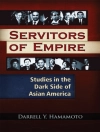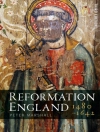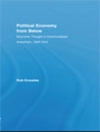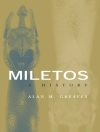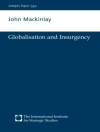The Republic of Korea achieved a double revolution in the second half of the twentieth century. In just over three decades, South Korea transformed itself from an underdeveloped, agrarian country into an affluent, industrialized one. At the same time, democracy replaced a long series of military authoritarian regimes. These historic changes began under President Park Chung Hee, who seized power through a military coup in 1961 and ruled South Korea until his assassination on October 26, 1979. While the state’s dominant role in South Korea’s rapid industrialization is widely accepted, the degree to which Park was personally responsible for changing the national character remains hotly debated. This book examines the rationale and ideals behind Park’s philosophy of national development in order to evaluate the degree to which the national character and moral values were reconstructed.
İçerik tablosu
Preface
List of Illustrations
Introduction / Hyung-A Kim and Clark W. Sorensen
Part One | Development
1. Heavy and Chemical Industrialization, 1973-1979: South Korea’s Homeland Security Measures / Hyung A-Kim
2. POSCO: Building an Institution / Seok-Man Yoon
3. The Cold War and the Political Economy of the Park Chung Hee Regime / Tadashi Kimiya
SPECIAL ESSAY
4. How to Think about the Park Chung Hee Era / Nak-Chung Paik
Part Two | Political Thought, Democracy, and Labor
5. Park Chung Hee’s Governing Ideas: Impact on National Consciousness and Identity / Young Jak Kim
6. Democracy in South Korea: An Optimistic View of ROK Democratic Development / James B. Palais
7. Labor Policy and Labor Relations during the Park Chung Hee Era / Hagen Koo
Part Three | Cultural Influence and Civil Society
8. Rural Modernization under the Park Regime in the 1960s / Clark W. Sorensen
9. Compressed Modernization and the Formation of a Developmentalist Mentalite / Myungkoo Kang
10. The Park Chung Hee Era nad the Genesis of Trans-Border Civil Society in East Asia / Gavan Mc Cormack
Bibliography
Contributors
Index
Yazar hakkında
Clark W. Sorensen is professor of international studies and anthropology in the Jackson School of International Studies at the University of Washington, where he is also director of the Center for Korea Studies. He is the author of Over the Mountains Are Mountains: Korean Peasant Households and Their Adaptations to Rapid Industrialization (University of Washington Press, 1988) and coeditor of Reassessing the Park Chung Hee Era, 1961-1979: Development, Political Thought, Democracy and Cultural Influence (Center for Korea Studies, University of Washington, 2011).


